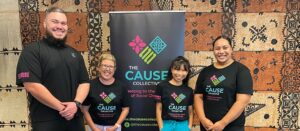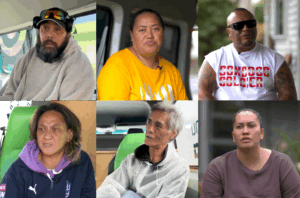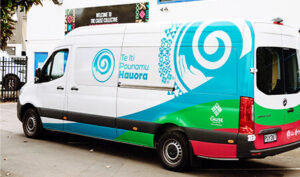The 55-year-old has come a long way since her upbringing in Plymouth, England, to driving a bus around South Auckland in search of some of the area’s most under-served and sickest people.
She and husband Paul moved to Auckland from London, where she trained as a nurse, in 1998 and in that time have built a whānau and earned huge respect from predominately Māori and Pacific communities in South Auckland where Paul also works, as a teacher.
“One daughter is training to be a midwife, but the other one prefers the ocean. She can’t stand hospitals, so she is planning to become a marine animal scientist,” Fenn said.
Read this story in te reo Māori here.
“Getting the award has been super surreal. I feel really honoured by it but for me it’s about my family and very close friends who’ve watched my journey. I feel a little bit proud, it’s kind of like yeah; I did that.”
The nurse practitioner award was presented to Fenn by Nurse Practitioners New Zealand.
Fifty stitches but no GP
Fenn’s first job in New Zealand was working as a nurse at North Shore Hospital emergency department (ED), before heading to Middlemore Hospital ED where she worked for 10 years until one particular incident made her lose sleep.
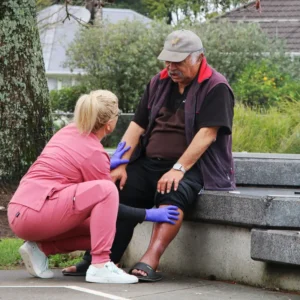
“One night I was at the ED stitching up a woman. She needed 50 stitches in her leg. Before we let patients go, we have to know who their GP is but she had no GP.
‘I was uncomfortable sending her out into the world knowing that she wasn’t going to get that nasty wound looked it. I think I lost sleep over that.’
“Every person I stitched up in the 10-plus years I’ve worked in ED, had a GP but not her. I was uncomfortable sending her out into the world knowing that she wasn’t going to get that nasty wound looked it. I think I lost sleep over that.”
So it was here that Fenn started to question whether or not she was really making a difference and what could she do to “reach the unreachable, who didn’t have GPs”.
“Not too long after that patient, I met a lady at a church dinner who was a GP and who, like me, was exploring how we can do health better for people who are sick and don’t have a GP or won’t go to see one.”
Serving the under-served
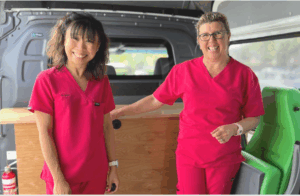
After a few more dinners, Fenn and general practice doctor Juliet Tay concocted a plan to leave the four walls of their jobs in a hospital and a medical centre to create not just a mobile health-care service, but a lifeline for vulnerable and hard-to-reach communities in South Auckland who had slipped through the cracks of the system.
“Juliet said to me that for this to work, I needed to become a nurse practitioner so I started training for that. I told her, she needed to get us a bus which she managed to do from the PHO she was working under at that time.”
The bus was and still is being used to get Tay and Fenn to the homes of sick people or people who would not go to the doctor.
‘We were and still are both driven by the people who have been forgotten, who for whatever reason don’t trust or feel safe or can’t go to medical centres and GPs.’
The next step was for them to find a group to fund and umbrella their service.
“I went to see Riana Manuel who at that time was the chief executive of the newly set up Te Aka Whai Ora–Māori Health Authority. She was a nurse too, so understood our vision and gave us the funding we needed to operate for the first six months in early 2023, which I am still so very grateful for,” Fenn said.
